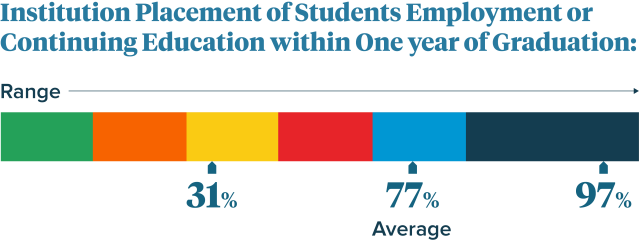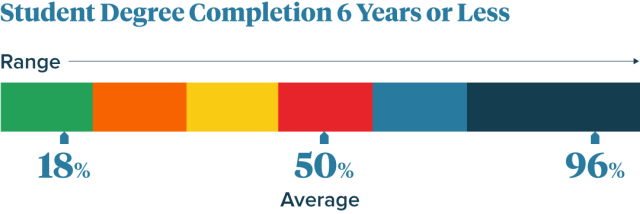Preparing Tomorrow's Workforce:
Aligning Our Research with Texas State Goals

The Texas Higher Education Coordinating Board has set ambitious targets through its 10-year strategic plan, Building a Talent Strong Texas, aiming for 60% of working-age Texans (ages 25-64) to hold a postsecondary credential by 2030, with 550,000 students completing these credentials each year. Aligning our research with these goals, we surveyed over 200 educators to understand how technology and workforce preparedness intersect to create impactful student outcomes.
Explore the research below that answers 3 key questions
Read on to discover how Texas educators are working to meet the ambitious state goals, build student pathways, and align education with workforce demands.
Key Trends
Advancing Texas Higher Education Initiatives
Whether you’re an educator, policymaker, or employer, these insights reveal how innovation, partnerships, and technology are building a Talent Strong Texas. Our findings answered three key questions:

What are the top factors
Impacting Student Success?
Skill Development
Digital Badges & Credentials
Employment Placement
Discover how Texas prioritizes three key factors contributing to student success: skill development, credentials and badges, and job placement, which increases employment opportunities and creates a more skilled talent pool through redesigned courses and programs aligned with job market needs.
What Do Students Need
From Institutions to be Successful?
Program Alignment with Career and Personal Goals
Seamless Transitions to Higher Education
Comprehensive Student Support

Learn how higher education institutions are paving the path to student success by aligning programs with career goals, partnering with K-12 institutions to ensure continuity, and expanding student support services.

How Can technology
Improve Learning Outcomes?
Boosting Student Success with Canvas LMS
Increasing Engagement with Canvas
Providing Meaningful Feedback with SpeedGrader
See how Texas educators are using Canvas LMS, Canvas Studio, and SpeedGrader to increase student engagement and provide meaningful feedback to serve a diverse group of students while highlighting the importance of personalized and engaging courses that enable learning from anywhere.
Methodology
Instructure researchers developed a survey to capture the perspectives of individuals working in Texas higher education institutions on student success, workforce preparedness, and the role of educational technology. Specifically, the survey included 73 Likert-type scale questions. The final sample included 215 individuals who actively consented to participate in the study, currently work in Texas higher education, and fully completed the survey. The participants were from 41 different institutions or campuses (e.g., University of Texas at Austin and University of Texas at Arlington) and worked in a variety of roles. Researchers used descriptive statistics to examine the survey data and identify trends. Researchers also conducted four interviews with Texas higher education faculty and staff to contextualize the trends identified by the survey data.

Demographics
This is a glimpse of the demographic data of the Texas higher education educators who participated in the research study. If you have any questions, we invite you to contact us at studentsuccess@instructure.com.
215 Educators & Administrators from 41 Public and Private 4-Yr & 2-Yr Institutions Across Texas, representing a total of 547,614 students.
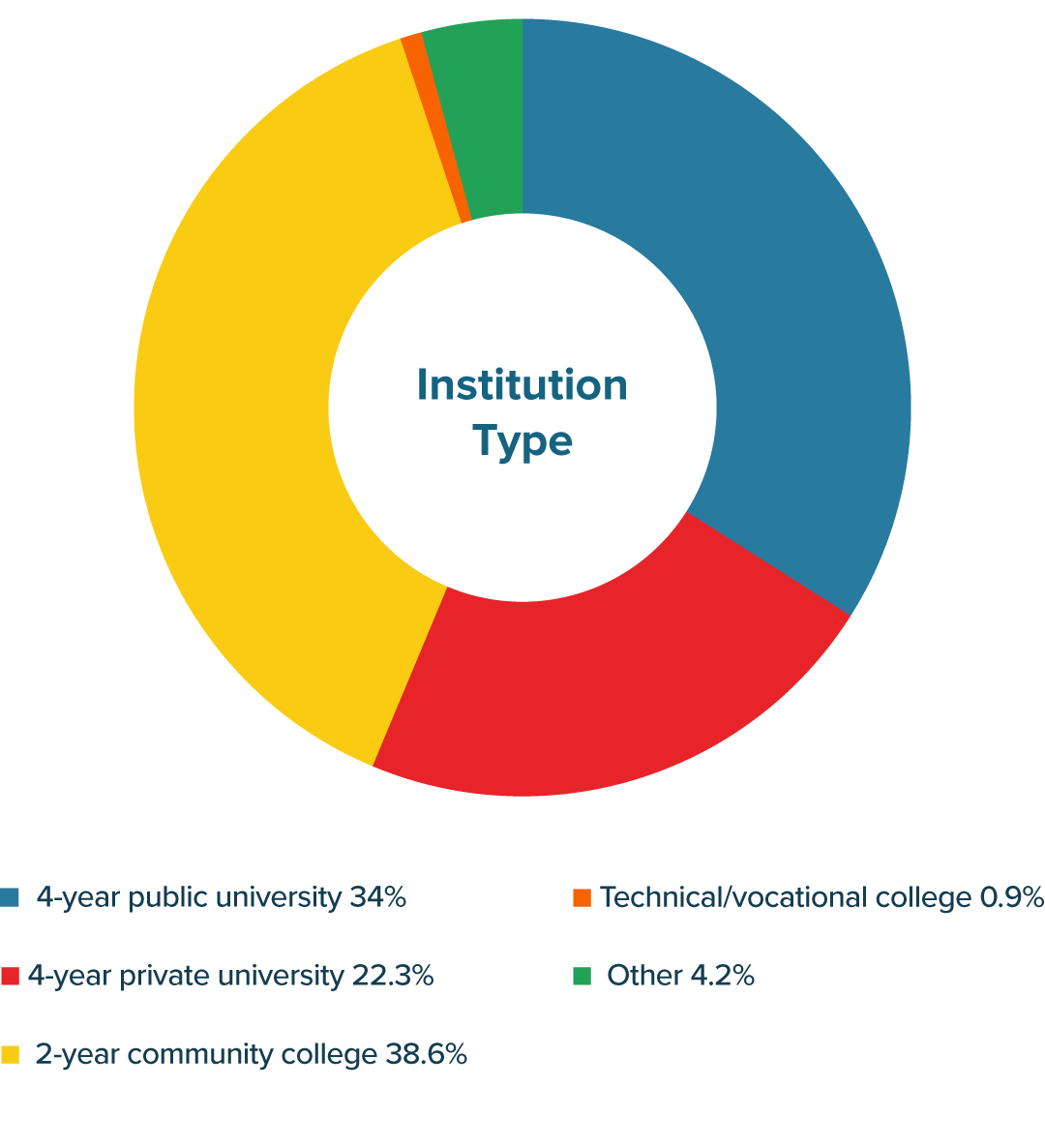
Institution Type
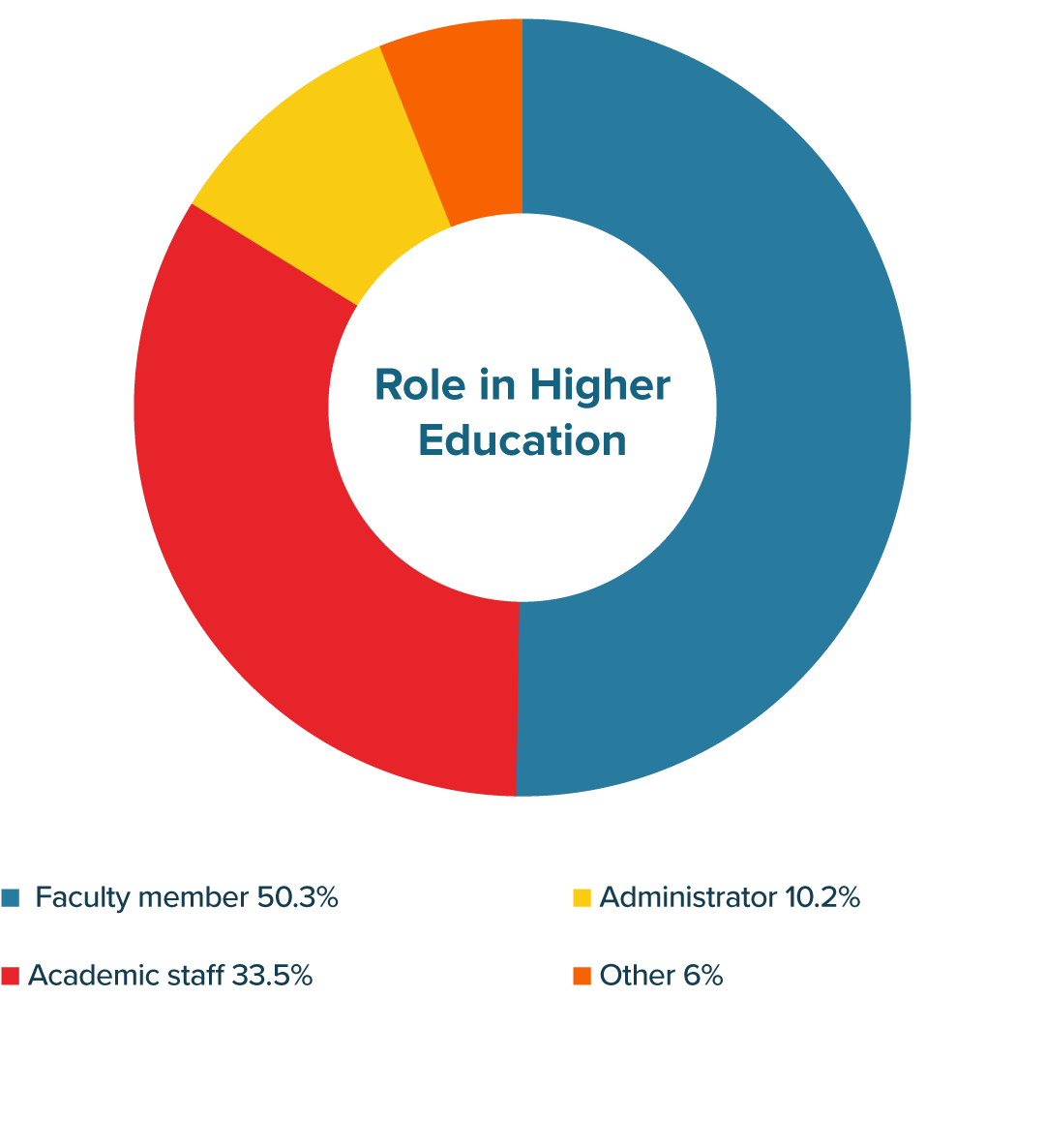
Role in Higher Education
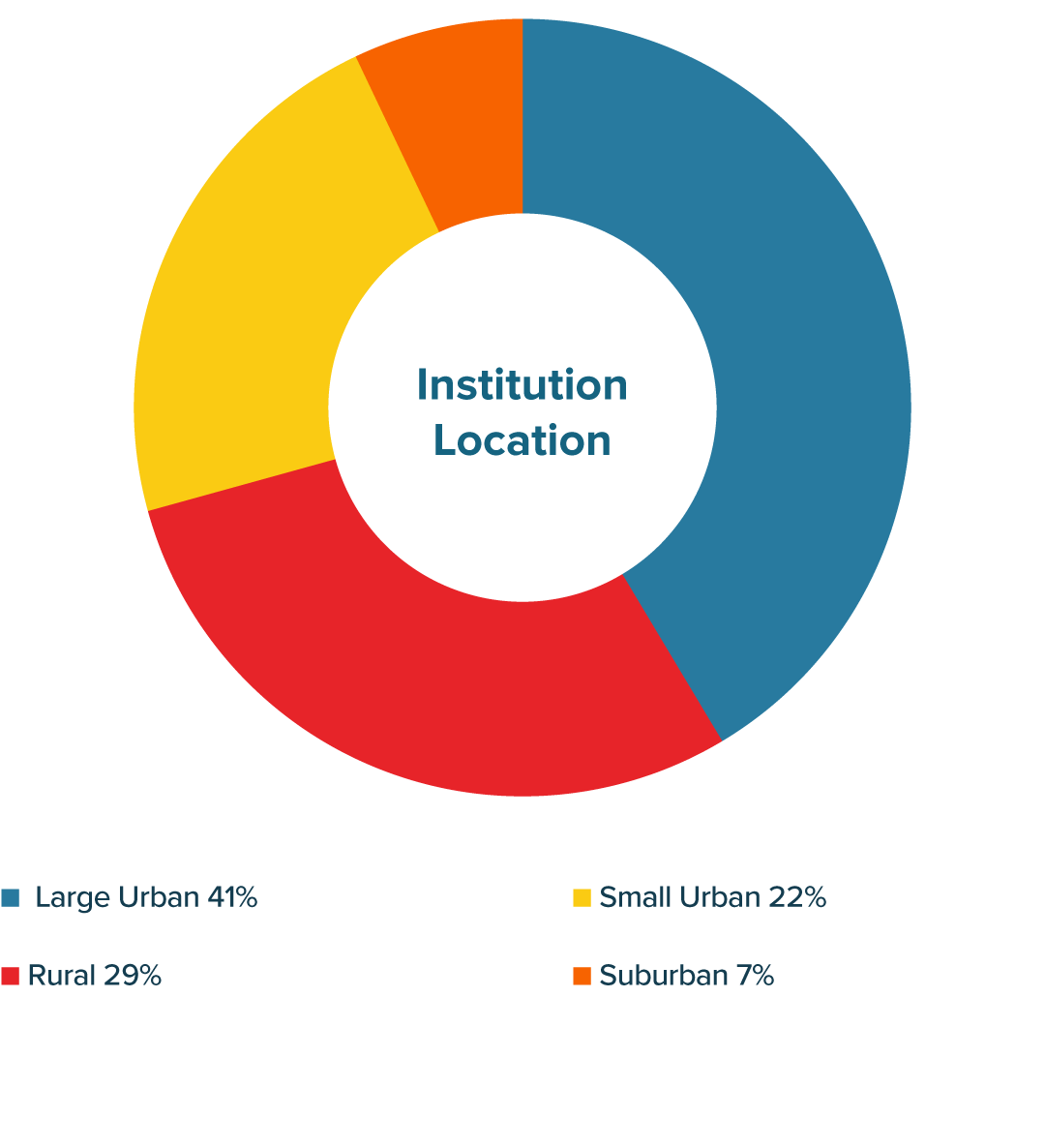
Institution Location
